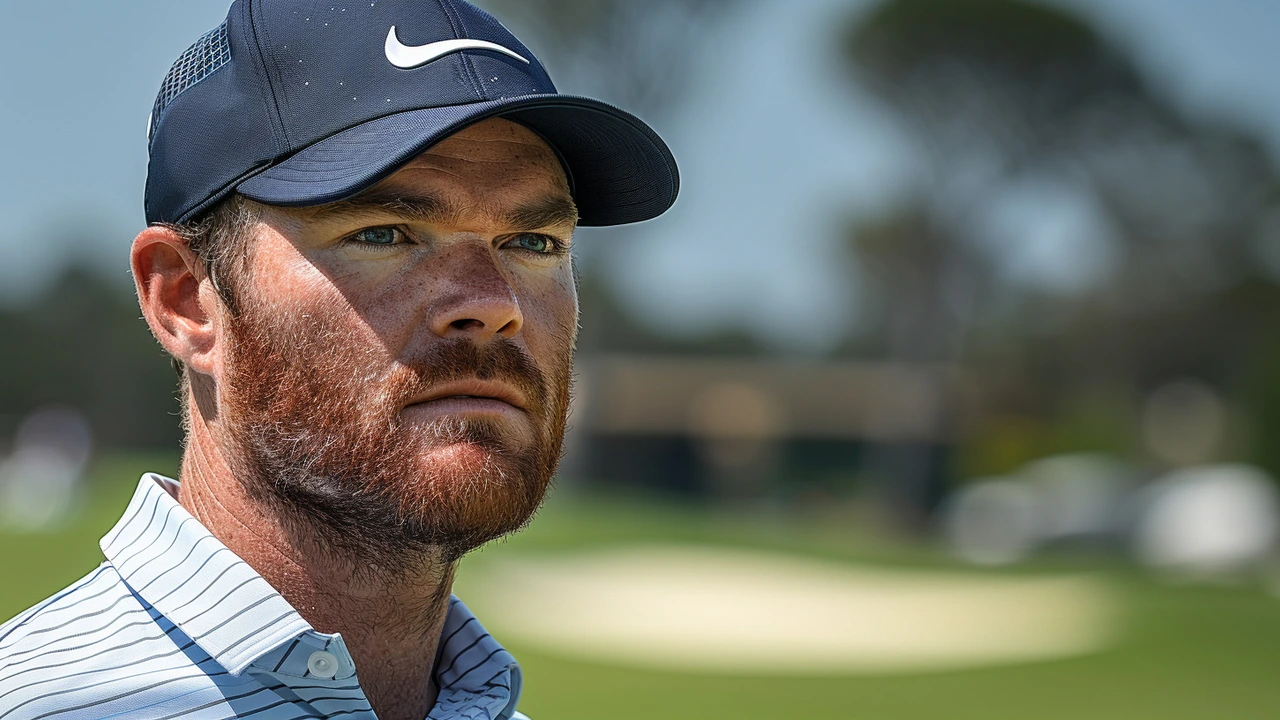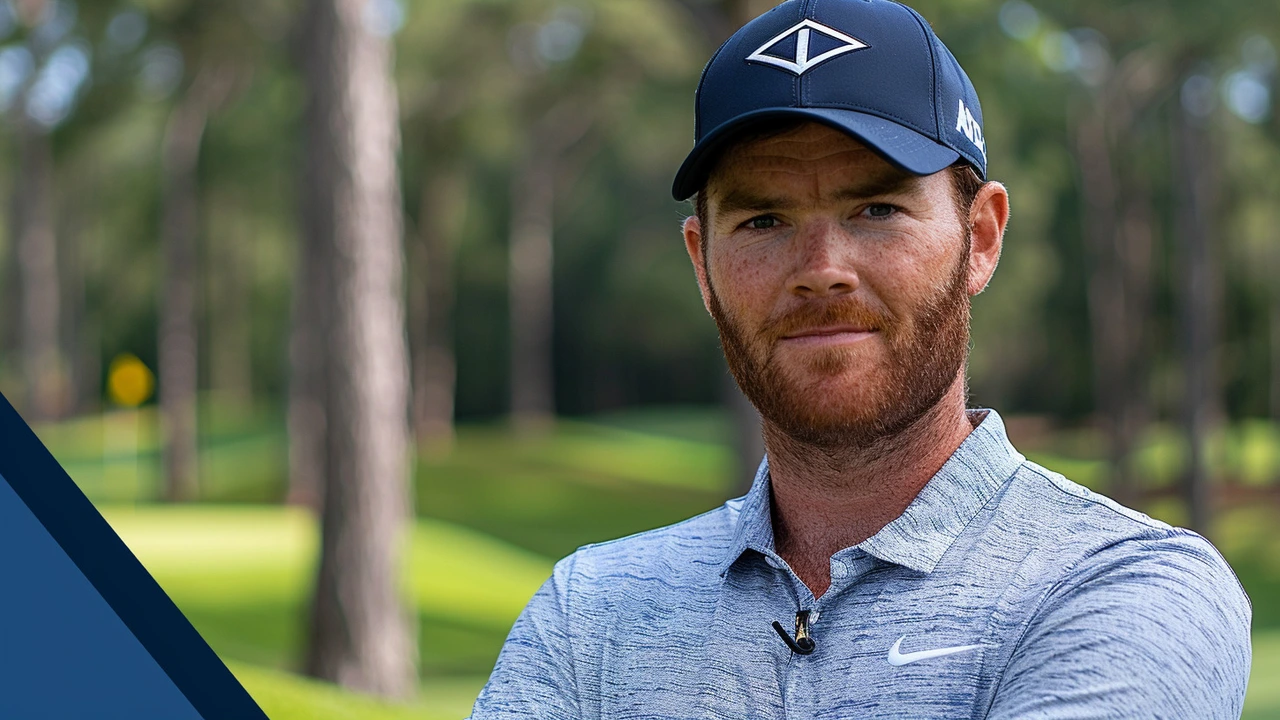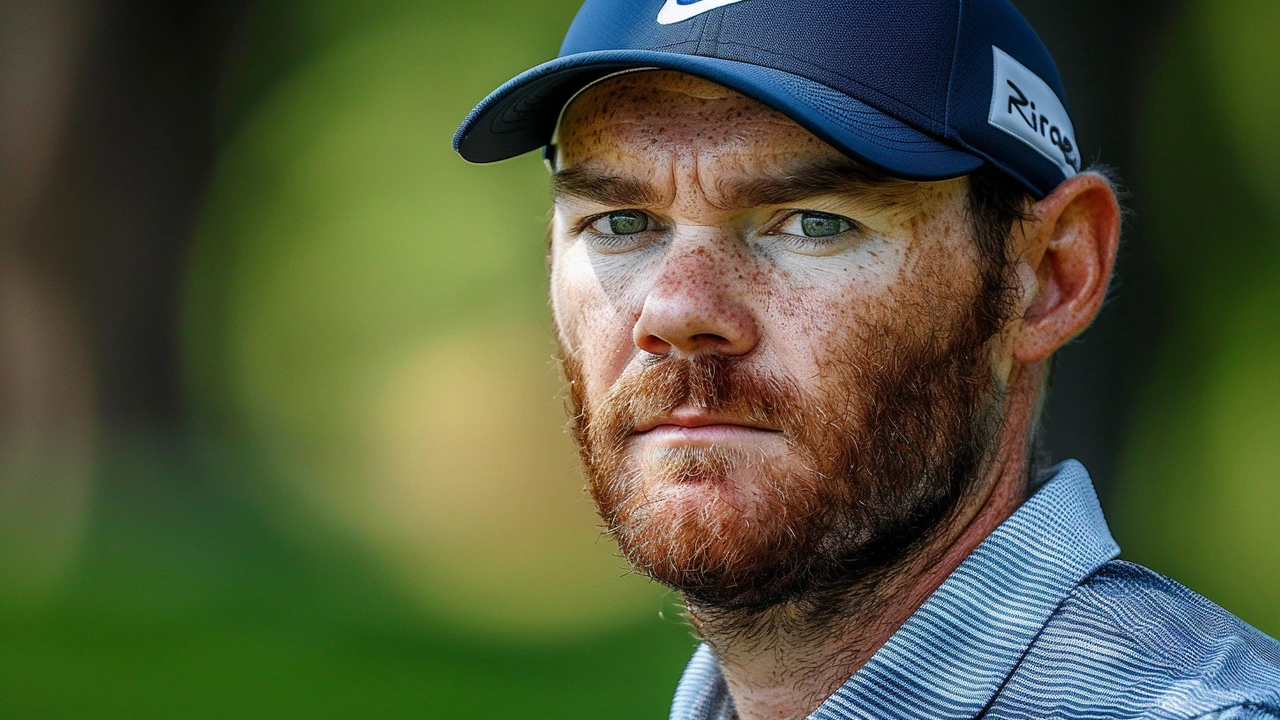PGA Tour Shocked by Grayson Murray's Tragic Suicide at Age 30

Grayson Murray: A Life Cut Tragically Short
In a heart-wrenching revelation, the family of PGA Tour golfer Grayson Murray has confirmed his untimely death by suicide at the age of 30. The young athlete, known for his exceptional talent on the golf course, left behind a grieving family and a shocked sports community. His parents, Eric and Terry Murray, shared the devastating news, expressing their deep sorrow and appreciation for the love and support extended to their son during his life. Grayson Murray's passing on Saturday morning, after withdrawing from the Charles Schwab Challenge at Colonial citing illness, has brought to light deeper struggles that the golfer faced.
A Golfer of Remarkable Talent
Grayson Murray's journey in the world of golf was marked by numerous achievements. The 30-year-old golfer had a promising career, highlighted by his victories at significant tournaments. Notably, he won the prestigious Junior World Championship and later clinched the Barbasol Championship, earning him recognition and respect within the golfing community. His talent on the greens was undeniable, and he made a name for himself as a dedicated and skilled golfer.

Struggles Beyond the Greens
Despite his professional successes, Grayson faced personal challenges that he openly discussed. In January 2023, he spoke candidly about his battles with alcohol addiction and mental health issues. His openness about these struggles shed light on the often-secretive battles many individuals face, even those who appear successful on the outside. Grayson's courage in sharing his story brought awareness to mental health issues, especially within the high-pressure world of professional sports.
A Shocking Departure
On the recent Friday before his tragic death, Grayson withdrew from the Charles Schwab Challenge, citing illness as the reason. This decision puzzled many, but the true nature of his departure became painfully clear with the revelation of his suicide. This unexpected loss has left the golfing community and fans in shock, grappling to understand the depth of his struggles and the weight of the issues he faced in silence.
A Family in Mourning
Eric and Terry Murray, Grayson’s parents, have expressed their profound grief and gratitude for the support that their son received from friends, the golfing world, and supporters throughout his career. They emphasized the importance of kindness and compassion, asking that people honor Grayson's memory by being considerate and supportive of one another. In their statement, they requested privacy to mourn their loss but conveyed their hope that Grayson's story would inspire greater awareness and empathy for those struggling with mental health issues.
The Importance of Mental Health Awareness
Grayson Murray's death has highlighted a critical issue within the sporting community and society at large — the importance of mental health. Despite the achievements and accolades, athletes often face immense pressure and stress, which can exacerbate underlying mental health conditions. Grayson's story serves as a poignant reminder that mental health struggles do not discriminate and can affect anyone, regardless of their external successes.
His openness about his personal battles was a step towards breaking the stigma associated with mental health issues. It underscores the necessity for continued dialogue, support systems, and resources to help individuals cope with these challenges. The sports community, in particular, must recognize the importance of mental wellness alongside physical training and competition.
Support and Resources
In the wake of this tragedy, numerous organizations and support networks are emphasizing the importance of mental health care for athletes. Programs and initiatives aimed at providing counseling, therapy, and support groups play a crucial role in helping individuals manage stress and mental health issues. The golfing community's response to Grayson's death demonstrates a collective effort to address these issues head-on, fostering an environment where athletes can seek help without fear of stigma or judgment.
Legacy of Compassion
Grayson Murray's legacy extends beyond his accomplishments on the golf course. The outpouring of love and support from fans, fellow golfers, and the broader community serves as a testament to the impact he had on those around him. His story has sparked important conversations about mental health, addiction, and the pressures faced by professional athletes.
As the family and the golfing community navigate this difficult time, there is a collective hope that Grayson's story will inspire change. By raising awareness and promoting compassion, his memory can serve as a catalyst for a more understanding and supportive environment for all individuals facing similar struggles.

Conclusion
The tragic loss of Grayson Murray has left an indelible mark on the world of golf and beyond. His journey, marked by remarkable achievements and personal battles, serves as a powerful reminder of the importance of mental health awareness and support. The sports community's response to his death reflects a growing recognition of the need for compassion and resources to help individuals facing mental health challenges.
As we remember Grayson Murray, let us honor his memory by fostering a more empathetic and supportive environment for all. By being kind to one another and recognizing the importance of mental wellness, we can create a world where individuals feel safe to seek help and support when they need it most.
16 Comments
Emily Kadanec
Grayson was one of the few pros who actually cracked the senior tour qualifying criteria at just 23, which most folks forget when they only talk about his barbasol win. His swing speed was clocked at 115 mph, and his putting average on the greens was .012 lower than the tour average. He also posted three top‑10 finishes in his rookie season, which is a solid indicator he was on a rapid ascent.
People love to focus on the tragedy right now, but his career stats show a player who could've been a household name if not for the personal battles he faced.
william wijaya
The loss of Grayson Murray feels like a sudden blackout on a fairway that was just beginning to shine.
In the high‑stakes ecosystem of the PGA Tour, where every stroke is parsed by data analytics platforms, the margin between triumph and despair can be razor‑thin.
Grayson’s trajectory, marked by a Junior World Championship and the Barbasol victory, demonstrated not only raw talent but also a sophisticated command of swing mechanics that coaches still dissect in pro clinics.
Yet behind the polished veneer of his tee shots lay a cascade of neurochemical turbulence that he bravely exposed in his 2023 interview.
The language he used-talking about alcohol dependency, cognitive fog, and the relentless pressure of sponsorship obligations-mirrored the diagnostic criteria we see in sports psychiatry literature.
When he withdrew from the Charles Schwab Challenge citing “illness,” the neurologic underpinnings were likely a manifestation of chronic stress dysregulation.
Scholars have long argued that elite athletes operate under a dual‑stress model: performance anxiety compounded by identity foreclosure when their self‑worth becomes tethered to results.
Grayson’s case is a textbook example of how the loss of that identity buffer can precipitate a crisis.
The PGA’s recent initiatives, such as the Mental Health Task Force and mandated access to licensed counselors, are steps in the right direction, but implementation remains uneven across tour venues.
In my experience consulting for sports medicine teams, the most effective interventions combine cognitive‑behavioral therapy with structured social support networks.
The community’s outpouring of love-tweets, Instagram tributes, and heartfelt statements from fellow golfers-signals a cultural shift toward openness.
However, symbolic gestures must evolve into tangible resources: funded therapy slots, 24‑hour crisis lines, and routine mental‑health screenings at every tournament checkpoint.
If we fail to institutionalize these supports, we risk repeating the tragedy that befell Grayson, whose untapped potential now serves as a sombre reminder.
The conversation should also expand beyond the tour to junior circuits, where early specialization often seeds burnout before athletes even graduate high school.
By integrating mindfulness curricula into golf academies, we can equip the next generation with tools to navigate pressure without internalizing it as a personal failing.
Ultimately, honoring Grayson’s legacy means turning grief into action, ensuring that no other promising golfer feels compelled to walk alone in the dark.
Lemuel Belleza
Honestly, the whole “mental health awareness” billboard feels like the tour’s latest PR stunt, especially when they still don’t provide on‑site therapists for the players during week‑long events.
faye ambit
When we contemplate the fleeting nature of achievement, Grayson’s story invites us to reflect on the broader human condition-how success is often measured externally while internal struggles remain unseen. It reminds us that compassion should extend beyond the scoreboard and into the quiet moments where vulnerability resides.
Subhash Choudhary
Man, it’s heartbreaking to see a talented guy like Grayson go like this. The tour really needs to step up its game when it comes to supporting players off the course.
Ethan Smith
Indeed, the PGA Tour has introduced several well‑intentioned programs, yet the efficacy of these initiatives remains limited without systematic integration into players’ weekly schedules.
Evelyn Monroig
What most people don’t see is that the tour’s “mental health initiatives” are merely a façade designed to protect its brand while silencing any dissent about the exploitative pressures placed on its athletes.
Gerald Hornsby
Grayson’s silence was a scream that the world ignored. 😔
Hina Tiwari
i feel so sad reading about grayson, his story really hit deep. mental health is sooo important, and we need to talk more about it without judgement.
WILL WILLIAMS
Let’s rally together, folks! 🌟 Support, speak up, and break the stigma-every voice counts.
Barry Hall
Rest in peace, Grayson.
abi rama
May his memory inspire us to prioritize mental wellness in every arena.
Megan Riley
Absolutely!!! We as mentors and coaches must cultivate environments where athletes feel safe to express their struggles!!! Let’s implement regular check‑ins and provide resources proactively!!!
Lester Focke
The lamentable demise of Grayson Murray underscores a systemic inadequacy within professional sport governance, wherein the exigencies of competition eclipse the requisite fiduciary duty to safeguard athlete well‑being.
Naveen Kumar Lokanatha
Indeed, a holistic paradigm that integrates mental health curricula alongside technical training is imperative for cultivating resilient competitors.
Alastair Moreton
Well said, but let’s not forget the data: teams that invest in comprehensive psychological support see a measurable uptick in performance metrics-proof that caring for the mind is also good for the bottom line.

Write a comment